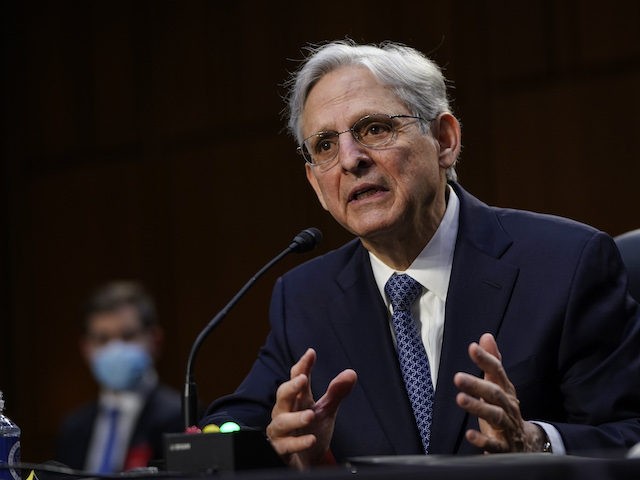Attorney General nominee Merrick Garland struggled Monday with questions about the death penalty during his confirmation hearing in the Senate.
Senator Tom Cotton (R-AR) questioned Garland about the death penalty, noting Biden’s publicly stated support for a death penalty moratorium.
Cotton noted that Garland worked on the case against domestic terrorist and white supremacist Timothy McVeigh for the bombing of a government building in Oklahoma City and asked if he believed it was a mistake to level the death penalty.
Garland confirmed he supported the death penalty at that time.
“I don’t have any regret but I have developed concerns about the death penalty in the twenty-some years since then,” he said.
Garland expressed his concern about the racial disparities in death penalty cases.
Cotton continued his line of questioning, raising the high-profile prosecution of Dylann Roof for the massacre of nine black Americans at a Charleston church.
“Do you believe that it was a mistake to seek the death penalty for Dylann Roof for murdering nine African-Americans as they worshiped in church?” Cotton asked.
Garland said he would not speak about a pending case.
Roof was sentenced to death in January 2017 and awaits execution.
When Cotton asked Garland if he would ever seek the death penalty if confirmed as Attorney General, he replied, “I think it does depend on what policy is adopted going forward.”
Biden campaigned for president on ending the death penalty, which, if fully realized, could mean that Roof may not be executed.
Over three dozen Democrat lawmakers wrote to Biden shortly after he was inaugurated asking him to commute the death sentences for criminals on death row.
“Commuting the death sentences of those on death row and ensuring that each person is provided with an adequate and unique re-sentencing process is a crucial first step in remedying this grave injustice,” the letter read.


COMMENTS
Please let us know if you're having issues with commenting.